English
Literacy at Michaelchurch Escley Primary School
At Michaelchurch Escley Primary School, our aim is to foster a love of reading and writing in every child, placing literacy at the heart of our curriculum. We believe that strong literacy skills are the foundation for all learning and that reading and writing are essential tools for communication, creativity, and critical thinking both inside the classroom and in the natural environment around them. Our literacy curriculum is designed to ensure that all children become confident readers and writers, enabling them to engage fully with the wider curriculum and to develop the skills needed for lifelong learning. We believe that literacy, just like outdoor learning, is a key foundation for children’s personal growth and their engagement with the world.
Our literacy program is built on a combination of high-quality schemes and structured learning, and outdoor learning opportunities to ensure that all children make progress in a well-rounded and engaging environment.
- Phonics and Early Reading: We use the Read Write Inc. scheme to teach phonics and early reading. This highly effective, systematic program helps children to develop strong phonetic skills, enabling them to decode words with confidence. Phonics is taught daily, sometimes outdoors, blending classroom learning with our natural surroundings to make phonics engaging and meaningful.
Phonics at Michaelchurch Escley Primary School pdf
- Writing: For writing, we follow the Literacy Tree scheme, which engages children through carefully selected, high-quality texts that inspire creativity and develop key writing skills. Children are encouraged to write for a range of purposes and audiences, using texts that model the structures and styles needed to become effective, independent writers. Writing tasks, when necessary, are linked to the natural world, encouraging creativity and reflection as children write stories, poetry, and reports inspired by what they observe outdoors. Our outdoor sessions also include collaborative storytelling and descriptive writing exercises that tap into the sensory experiences of nature.
Sapling Class Writing long Term Plan Literacy Tree.pdf
![]() Oak Writing LTP Literacy Tree.pdf
Oak Writing LTP Literacy Tree.pdf
Oak class Writing Long Term Plan Literacy Tree.pdf
Acorn Class Writing Long Term Plan Literacy Tree.pdf
![]() wholeschoolmixedagecurriculummap.pdf
wholeschoolmixedagecurriculummap.pdf
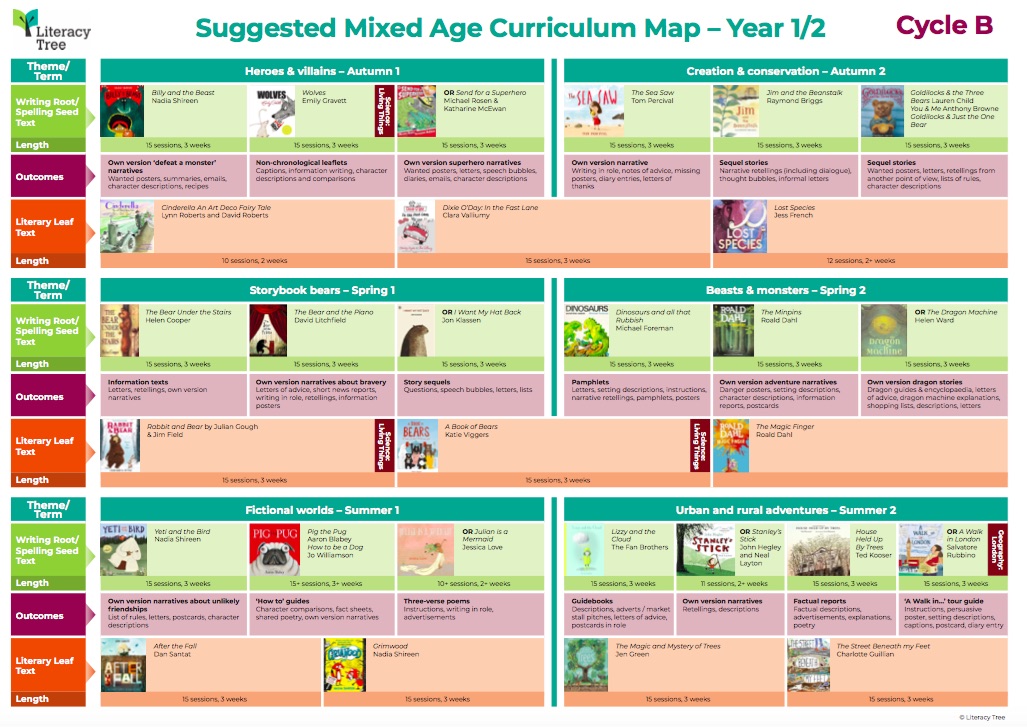
-Handwriting:
At Michaelchurch Escley Primary School, we believe handwriting is more than a presentation skill — it is a key part of how children think, communicate, and express ideas.
Handwriting is a complex task, requiring both:
- Composition – generating and organising ideas.
- Transcription – the physical act of writing letters, words, and sentences.
We aim to develop both elements in balance so that pupils can write fluently, legibly, and confidently.
Early Writing and Readiness for Writing
Writing readiness develops through physical, visual, and cognitive skills. Children must be ready before formal handwriting teaching begins.
Indicators of Readiness
Children who are ready can:
- Hold a pencil with control and comfort.
- Sit with stable posture and maintain appropriate pressure.
- Secure and position paper correctly.
- Demonstrate fine and gross motor strength.
- Track simple shapes and patterns visually.
- Understand directional vocabulary (up, down, left, right, anticlockwise).
- Communicate about movements using descriptive words such as press, pull, push.
Initial Assessment – “P Checks”
Teachers assess readiness using:
- Pencil – grip and control.
- Posture – sitting stability.
- Pressure – control of force.
- Paper – ability to steady and orientate it.
|
Family |
Letters |
Key movement |
|
Curly caterpillar |
c o a g q d |
Anticlockwise curves |
|
Ladder |
i l t k j |
Pull down |
|
One-armed robot |
r n m h p b |
Pull down and push over |
|
Zig-zag |
v w u y f |
Pull down and push up |
|
Others |
e s x z |
mixed patterns |
- Spelling: Spelling Shed is used to support the development of spelling skills. This interactive tool helps children to practise and improve their spelling in an engaging, fun way, reinforcing spelling rules and patterns that underpin their writing.
![]() Spelling Shed - Stage 6 - Full Scheme - Scheme.pdf
Spelling Shed - Stage 6 - Full Scheme - Scheme.pdf
![]() Spelling Shed - Stage 5 - Full Scheme - Scheme.pdf
Spelling Shed - Stage 5 - Full Scheme - Scheme.pdf
Spelling Shed - Stage 4 - Full Scheme - Scheme.pdf
![]() Spelling Shed - Stage 3 - Full Scheme - Scheme.pdf
Spelling Shed - Stage 3 - Full Scheme - Scheme.pdf
![]() Spelling Shed - Stage 2 - Full Scheme - Scheme (1).pdf
Spelling Shed - Stage 2 - Full Scheme - Scheme (1).pdf
![]() Spelling Shed - Stage 1 - Full Scheme - Scheme (1).pdf
Spelling Shed - Stage 1 - Full Scheme - Scheme (1).pdf
![]() Spelling Shed Overview - Spelling Shed Overview.pdf
Spelling Shed Overview - Spelling Shed Overview.pdf
![]() Spelling Activities For Parents.pdf
Spelling Activities For Parents.pdf
- Whole-Class Reading: Once a week, we deliver whole-class reading sessions to promote discussion, comprehension, and critical thinking. These sessions provide a chance to explore texts together, developing fluency, vocabulary, and a deeper understanding of different genres and themes.
![]() Acorn Class Long Term Plan Reading .pdf
Acorn Class Long Term Plan Reading .pdf
![]() Sapling Class Long Term Plan Reading.pdf
Sapling Class Long Term Plan Reading.pdf
-Reading for pleasure: We encourage children to explore the joy of books and develop a lifelong passion for reading. Our school library is a calm welcoming space where children can immerse themselves in a diverse range of books, from classic stories to exiting new titles. We encourage regular visits to the library where children are free to explore books that ignite their imagination, build their vocabulary and broaden their understanding of the world. We provide opportunities to share their favourite books, participate in book recommendations, and engage with reading challenges and class discussions.
-Technology is an important part of our approach to literacy. We use online platforms such as Spelling Shed and interactive reading tools to engage children and reinforce their skills in new and exciting ways. These platforms allow for personalised learning and instant feedback, helping children progress at their own pace.
-Real-Life experiences: we place great importance on providing our pupils with real-world literacy experiences. Visits to the Hay Festival expose children to world-renowned authors and literature. Trips to local bookshops nurture a love of reading and the excitement of exploring new books. Author and poetry workshops give children the opportunity to meet writers and gain inspiration from experts in their craft. Our literacy development is also embedded in creative oracy development opportunities such as our summer production, class assemblies and the nativity, where children develop their speaking, listening and skills through scripts and performances.
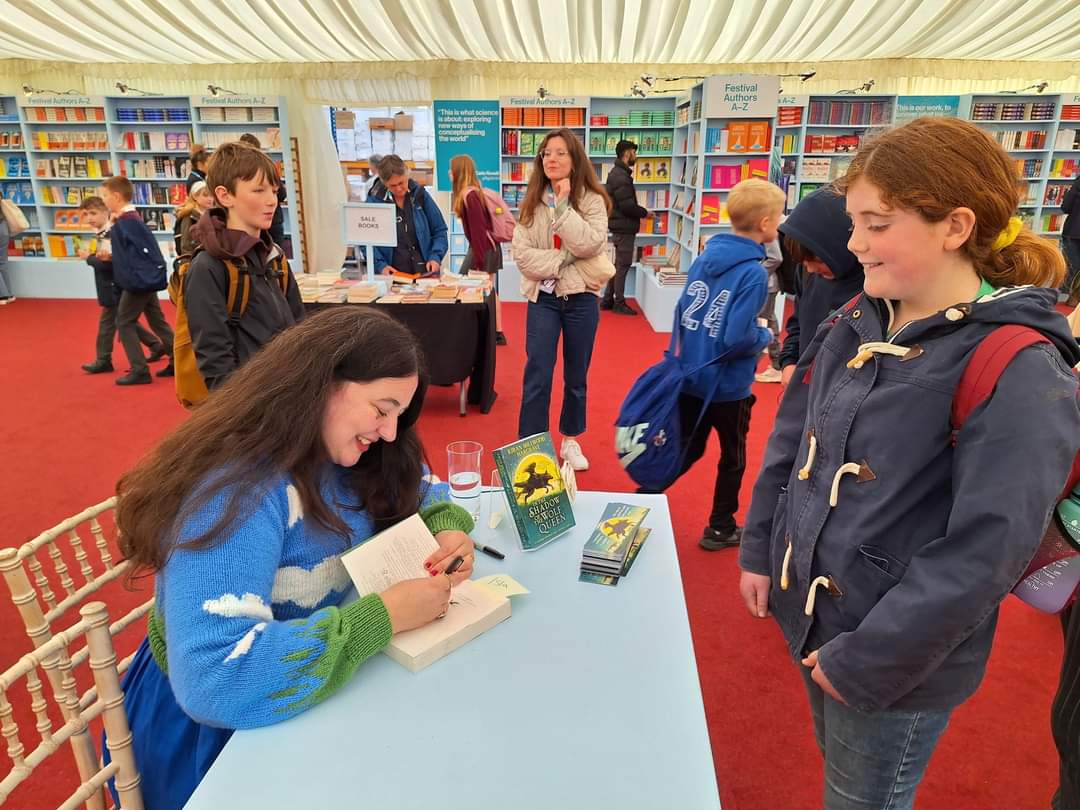
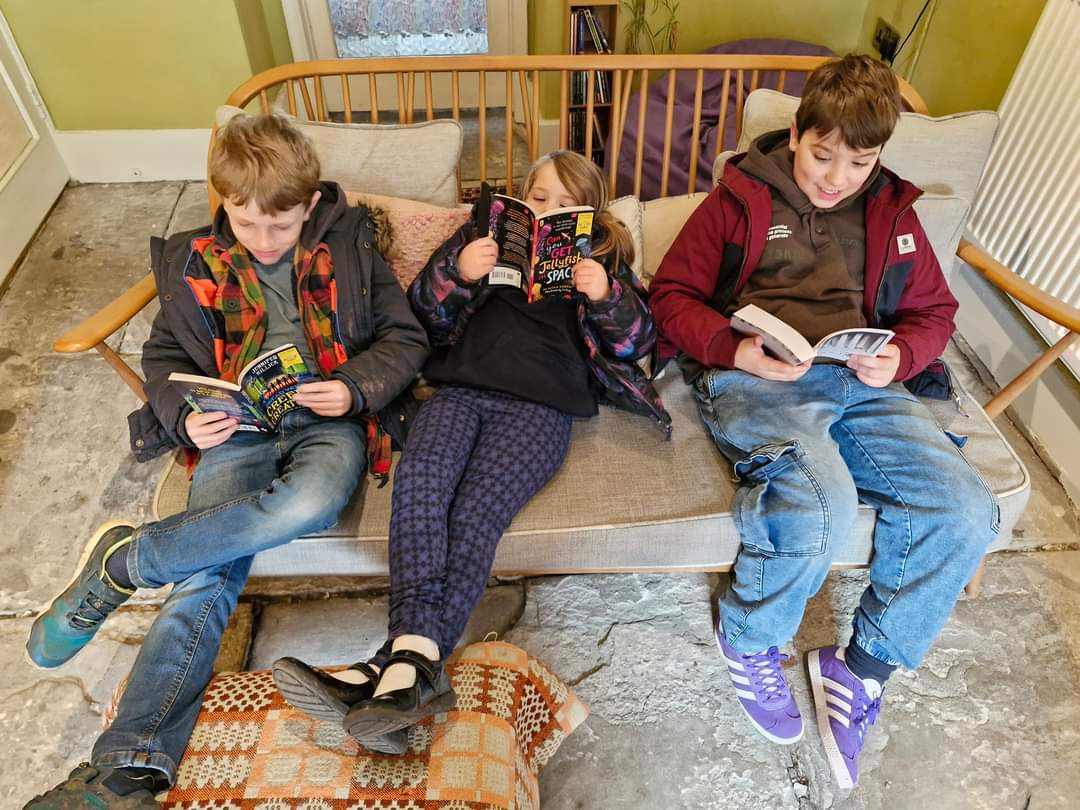
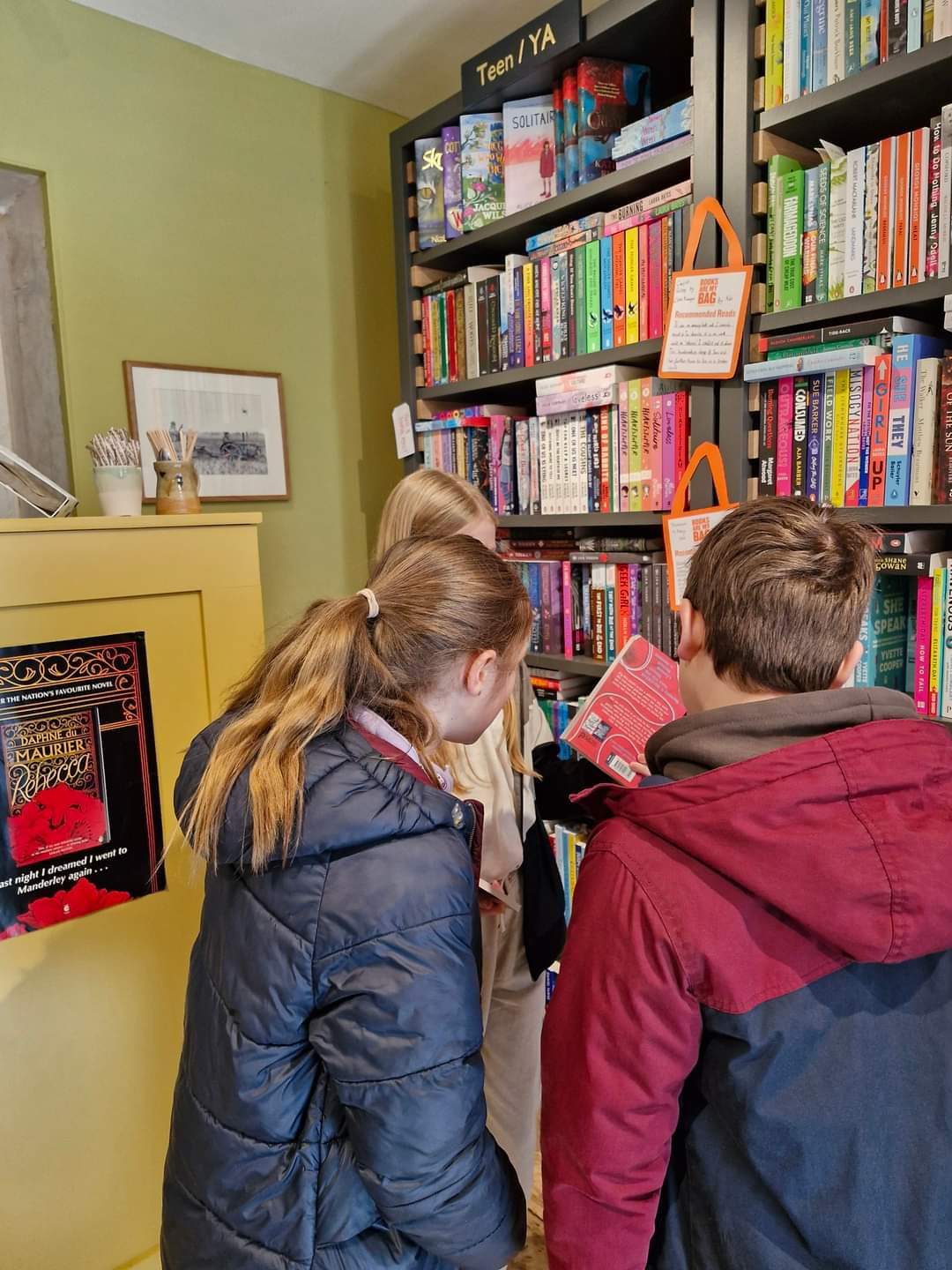
-Inclusive curriculum: We are committed to providing a fully inclusive literacy curriculum. Children with additional needs receive targeted support through small-group interventions and one-on-one sessions, ensuring that every child makes progress. Our teachers regularly assess and adapt literacy tasks to meet individual needs, using strategies such as scaffolding and personalised learning plans to support each child’s literacy journey.
-Assessment: Children's progress in literacy is continuously monitored through regular assessments in reading, writing, spelling, and phonics. Teachers use formative assessments to guide daily teaching and tailor instruction to meet individual needs. Summative assessments are carried out termly, providing clear evidence of each child’s development in literacy. Data from these assessments is used to inform targeted interventions, ensuring that all children are making progress and achieving their potential.
-Integrated across the curriculum: At Michaelchurch Escley, literacy is integrated across the curriculum. Whether writing scientific write-ups, composing historical diaries, or reading informational texts in geography, we ensure that children apply their literacy skills in meaningful contexts across all subjects. This cross-curricular approach deepens their understanding and helps them see the relevance of literacy in every area of learning.
-Parental Engagement: Through workshops, reading diaries, and parent information evenings, we provide guidance on supporting reading and writing at home. We believe that fostering a strong school-home partnership is key to nurturing a love of reading and ensuring progress in literacy.
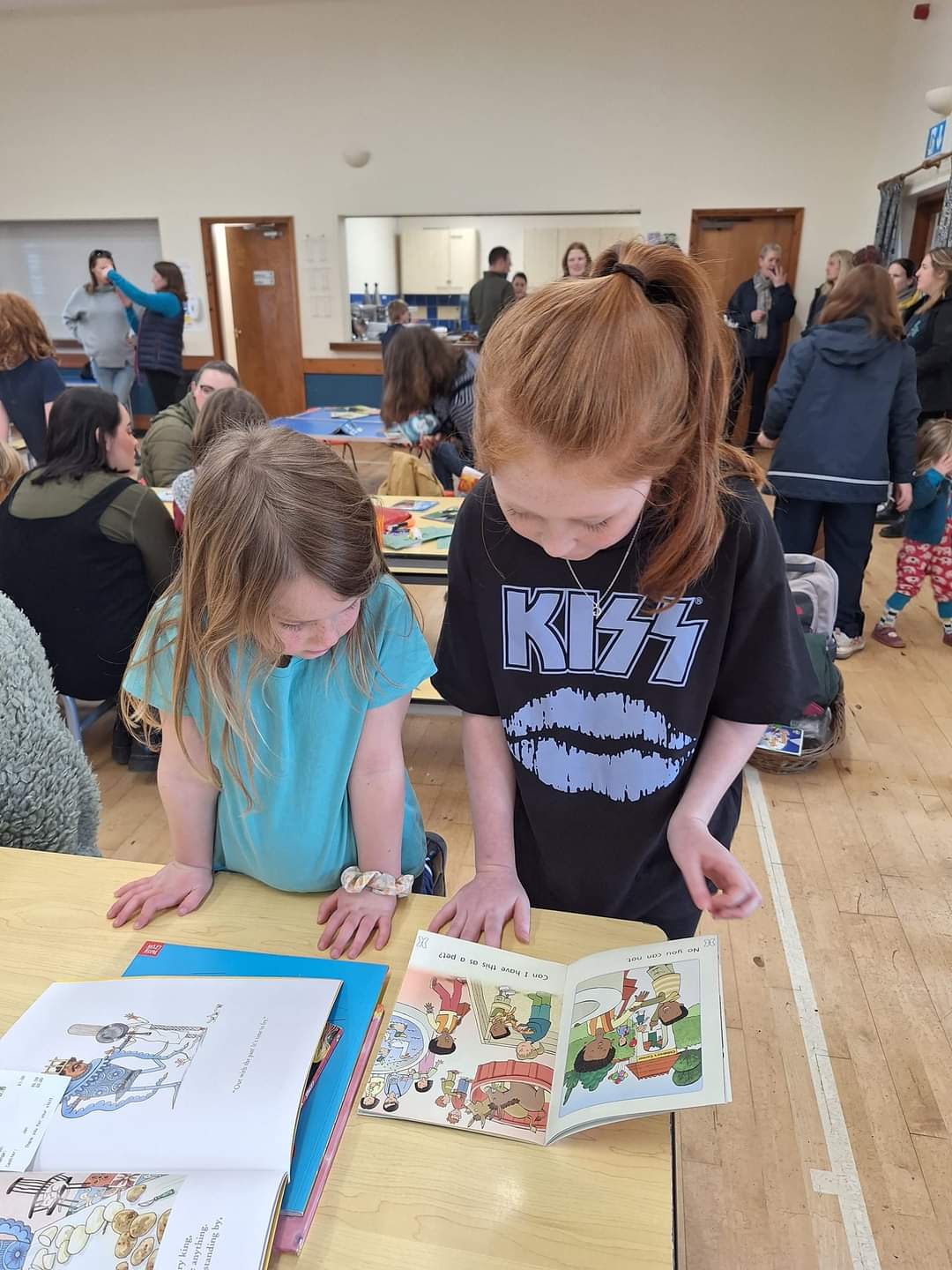
Throughout school, reading is central to our curriculum. We aim to cultivate a genuine passion for books and encourage our pupils to read widely and often through providing reading rewards and certificates, but we understand that real-life literacy experiences are invaluable in sparking creativity and deepening children's engagement with reading and writing. The love of reading and hands-on experiences helps bring literacy to life in exciting and memorable ways, which helps pupils access and enjoy learning across all subjects.
By the time children leave Michaelchurch Escley Primary School, they are confident, capable readers and writers. The impact of our literacy curriculum can be seen in the children's ability to:
- Read fluently and with good comprehension, allowing them to access a wide range of texts across the curriculum.
- Write clearly, accurately, and creatively for different purposes and audiences.
- Spell with increasing accuracy and confidence, using the spelling rules and patterns they have learned.
- Develop a lifelong love of reading, supported by their exposure to a diverse range of books and texts.
Our approach to literacy ensures that all children, regardless of their starting points, make progress and achieve their potential, preparing them for the next stage of their education with strong literacy skills. This not only equips children with essential reading and writing skills but also instils in them a love for learning both inside the classroom and in the world beyond.
